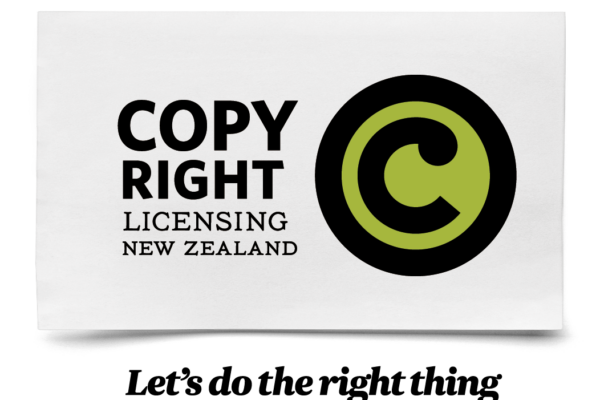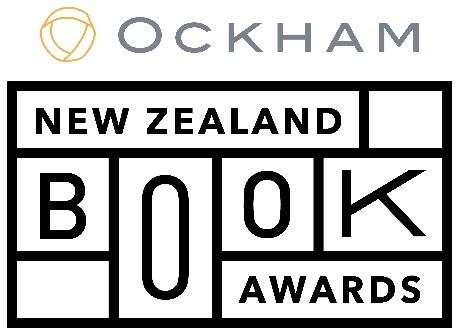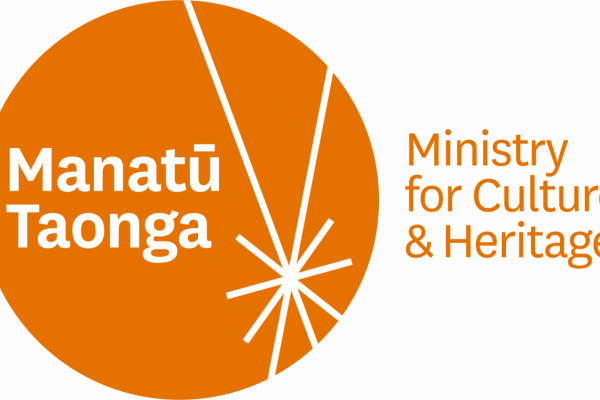WHAT WILL THE POLITICAL PARTIES DO FOR NEW ZEALAND’S LITERARY SECTOR?
In June our National President, Siobhan Harvey, penned a letter to the leaders of all major and minor political parties, copied also to ministers with responsibility for both Business and Culture portfolios.
We sought detail on their policies on issues pertinent to writers, authors and illustrators in New Zealand and on literary arts policy in general. It was a disappointing response. Siobhan followed up with all parties, urging them to respond and giving them ample time to do so. We received considered responses from Labour, the Maori Party and United Future. As this was insufficient to fully inform us about policy, I have cut and pasted pertinent parts of party policy around copyright protection gleaned from other media announcements and these are also below.
Direct responses to NZSA as received:
NATIONAL PARTY RESPONSE
On behalf of Hon Simon Bridges, Minister for Economic Development, we acknowledge and thank you for your letter received 7 July 2017. Your comments have been placed before the Minister for his consideration and you will receive a reply in due course. Kind regards, Office of Hon Simon Bridges Minister for Economic Development | Minister of Transport | Minister for Communications Deputy Leader of the House | Associate Minister of Finance | Member of Parliament for Tauranga No further response received despite several follow-up emails.
LABOUR PARTY RESPONSE
Broadly speaking, which of your party’s policies would be most useful to support and grow the local literary scene? Which specific policies do you believe would help ensure more local writers are able to receive reasonable payment from their writing?
Labour has promoted initiatives to support writers; we have worked to increase New Zealand book exports overseas and supported the development of New Zealand Book Month. In Government, Labour increased funding for the annual royalty payment that New Zealand authors get to compensate them for use of their books in public libraries and included this initiative in legislation. We passed Public Lending Right for New Zealand Authors Act. Looking ahead, Labour will work with education providers, employers, Creative New Zealand, and other invited parties to support the development of measures that support early career cultural Workers. We will review the Public Lending Right for New Zealand Author’s Act five yearly (or CPI adjusted). The first review will take place when we take office.
There can be no question that a literate society is a healthy society, or that a vibrant local literature scene is an essential ingredient in any country’s cultural health. Yet literature seems currently a lower priority for Arts funding. What is your policy towards funding for literature?
Labour will continue to invest in Creative New Zealand, and directly support other Institutions of national significance. We’ll structure it to ensure that it is practitioner led. In addition to the measures mentioned in Question 1, we will also work with the pan-literary group, and more broadly, to ensure that New Zealand Book Month occurs on an annual basis. Labour will review and amend criteria for writers’ scholarships. Recipients of writer’s scholarships should have the option of staying and working at home.
The success of New Zealand Music Month is evidence of how a sea-change in attitude towards local artists can be engineered over time and the enormous benefits this ultimately brings. Would you support increased funding for NZ Book Month to enable it to similarly focus on promoting local writing and writers?
Labour work with the pan-literary group, and more broadly, to ensure that New Zealand Book Month occurs on an annual basis.
The Public Lending Right compensates writers for lost royalties on public library holdings. The income provided is increasingly welcome as writers’ incomes come under ever-greater pressure. However the Fund has not been increased since 2009. Do you support a significant increase in the PLR Fund?
Labour will review the Public Lending Right for New Zealand Author’s Act five yearly (or CPI adjusted). The first review will take place when we take office.
Currently there is not similar compensation to writers for lost royalties on library holdings in education institutions. Do you support the establishment of an Educational Lending Right (ELR) similar to that which operates in Australia? (original request has weblink for more info)
We are open to exploring this idea, and would need to consider the implications for both writers and education institutions.
Ensuring a vibrant local literature scene requires a level playing field for local writers, publishers and bookshops. But with cheap overseas titles readily available through overseas-based websites, local titles risk becoming a luxury item. Do you support removing GST on all locally-published books OR imposing GST on books bought online?
Ideas such as these could be considered by the Labour and the ‘pan-literary group’ which Labour will re-establish.
Local copyright laws are coming under increasing pressure around the world as multinational organisations seek to undermine the rights of copyright owners. For example, as part of the TPPA, countries are being asked to adopt a US “fair use” policy which would water down many of the existing protections and safeguards. Do you support strong copyright laws which give the rights of the copyright owners’ precedence?
Yes, Labour will undertake a full review of the Copyright Act, with the aim of introducing a new Copyright Bill by 2015 that updates and extends the framework for digital copyright in New Zealand. Labour recognises while there are strong potential benefits in the TPPA there are also real risks. We do not currently know what is in the text. That’s why the Government must release the text before it is signed, so that we and other New Zealanders can determine whether it is in our interests.
A PS One of our members has contacted us about Labour Policy: “Labour is committed to a review of PLR but what is not mentioned above is that, if you look under their Internal Affairs policy, you will see they will reinstate the independence of National Archives and the National Library. The latter is absolutely essential for also securing the separation of the Public Lending Right from DIA and NZSA having much more say over its future, review and funding.”
MAORI PARTY RESPONSE
The Maori party thanks the New Zealand Society of Authors for their advocacy on behalf of the New Zealand literary sector and we recognise the important contribution literacy and the literary arts as a part of the wider arts sector play in the education of our country and in particular our tamariki.
While we have no specific policies for the literary sector, we are pleased to support the many areas where we share a common goal to support the growth and development of the literary sector. We recognise the importance literacy plays in the education of our tamariki, and we seek to ensure they have access to insightful resources as they progress through their educational pathways. Equally so we recognise the contribution that authors make in the fundamental development of our tamariki and acknowledge their rights as artist and author to receive fair recognition and appreciation of their efforts.
We also share common concern around the impact international agreements can have on our domestic intellectual property protections. We respect the rights of New Zealand authors and artists to have sound assurances that their works will not be put at risk through our domestic or international policy arrangements and share the concerns of the New Zealand Society of Authors about the implications the Trans-Pacific Partnership Agreement on intellectual property protections. The M?ori Party alongside others voiced their strong opposition to this agreement.
We encourage our writers to engage with modern technologies to better support the transition of literacy into the digital age, allowing our tamariki to better develop skills necessary for overall wellbeing.
UNITED FUTURE RESPONSE
We think the local literacy scene is important, we don’t have any specific policies on local writers but fully support them receiving reasonable payment and opportunities. We are interested in investigating what routes we can take to do that. We fully support recognizing all forms of art as important we would acknowledge the contribution of artistic and cultural activities to the economy through funding assistance and we support that assistance going to literature as well as other arts. We fully support making literary arts celebrated, we have committed to arts funding which will give the support needed to boost the profile of literary arts and are open to investigating how else we can help.
We don’t have a policy with regards to PLR fund, but can see that some changes may need to be made with regards to e-books and other changes since 2009. We are open to investigating and are open to the provisioning of additional funding. We don’t have any policy to establish such a scheme. We don’t have any policy to do that, but we are open to investigating the idea if it would be a useful investment. We don’t plan to change the GST scheme with regards to books. We are open to investigating changing the laws with regards to online purchases, but do not have a firm policy on it. We support ensuring that all those who produce content are protected, we want to see the spirit of that carried out to any review. We fully support the work of developing a digital strategy and support providing resources so that all arts can be disseminated more effectively using digital technology. We support making sure that we can show New Zealand work to the world and so are open to investigating additional funding for the purposes of international fairs.
PARTIES WHO DID NOT RESPOND
ACT: on behalf of David Seymour thank you for the below email. The ACT Party would like to decline the below request.
Conservative Party: As a minor party not in Parliament we have not formulated a policy around these matters.
New Zealand First Party
Mana Party
TOP NZ
The Greens
WE RESEARCHED POLITICAL PARTY TRADE AND COPYRIGHT PROTECTION POLICIES – THE RESPONSES BELOW WERE COLLATED BY NZSA NATIONAL OFFICE
National Party
National continues to advocate for the protection of intellectual property both internationally and at home. This is reflected in our drive for greater IP protection in free trade and other international agreements.
We will continue to ensure that Free Trade Agreements (FTA) include minimum legal standards for IP protection, based on international benchmarks and will push for countries to implement these standards through sound domestic legal system.
A National Government will continue to provide international protection for New Zealand rights holders through respect of the TRIPS and other WTO Agreements.
Examples of this include the ASEAN Australia New Zealand Free Trade Agreement, New Zealand-Korea Free Trade Agreement, and TPP where we have ensured that authors of copyright-protected works have the exclusive rights to reproduction, distribution and communication to the public.
Labour Party
Copyright is an important issue and challenge for creative industries. A comprehensive copyright review was due to occur in 2013 but hasn’t occurred. Labour will undertake a full review of the Act so that an updated Copyright Act balances the right of artists to be remunerated and of consumers to participate in modern society.
The first phase of the review would be to commission an independent analysis of the problems with existing legislation from an eminent expert. The review will include the principle that the copyright framework must continue to incentivise creators of content and support them in protecting their rights from unlawful use.
Green Party
Protecting IP is important. The Green Party has been critical of trade deals like the TPPA, and the proposal to extend copyright from 50 years to 70 years beyond the life of the creator. We are in favour of Copyright Law being changed to include reasonable “fair use” provisions.
United Future
We are committed to maintaining the integrity of IP and will ensure that it is protected.
The Opportunities Party
We support the protection of property rights including intellectual property.





